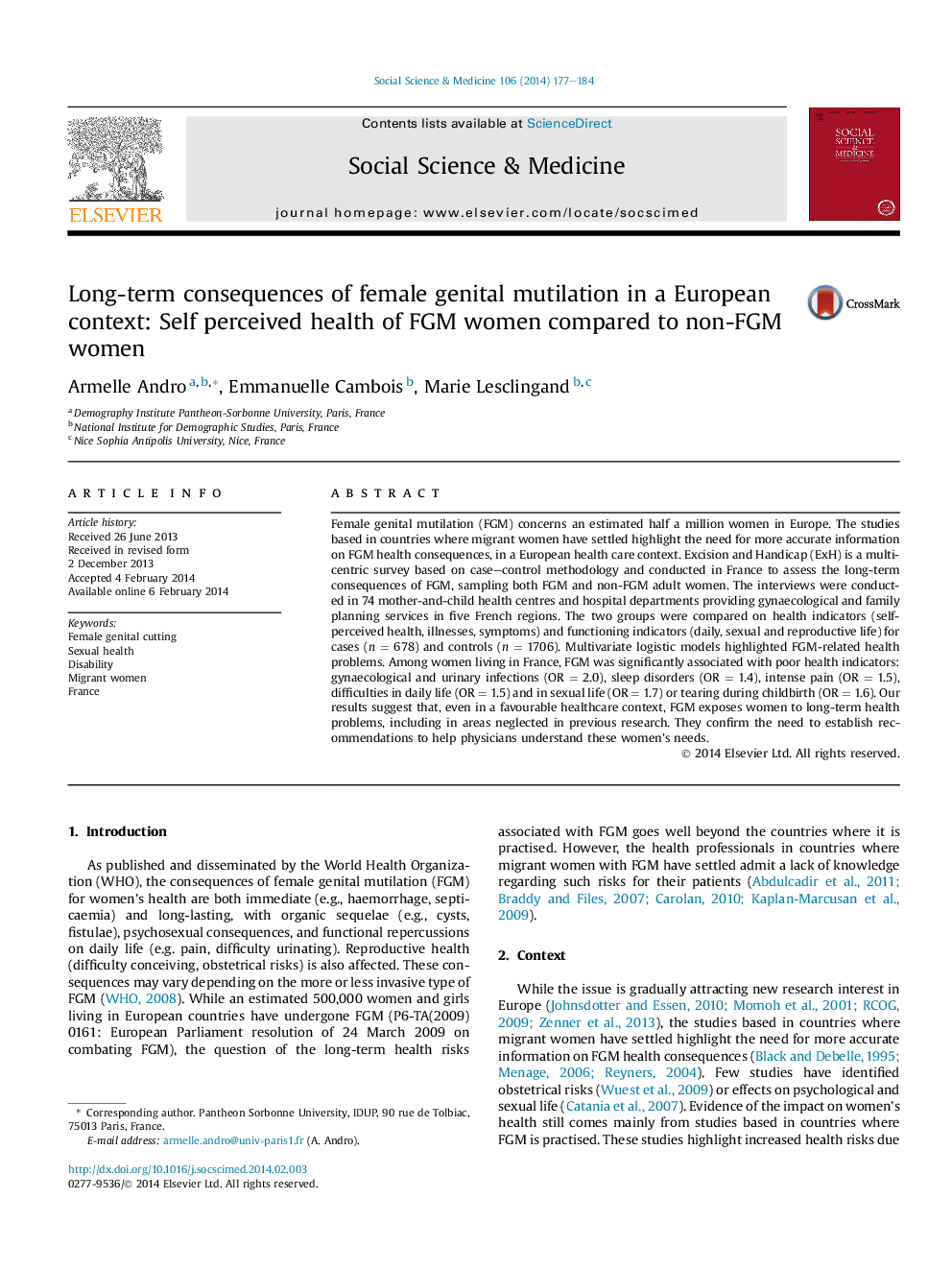| Article ID | Journal | Published Year | Pages | File Type |
|---|---|---|---|---|
| 7335565 | Social Science & Medicine | 2014 | 8 Pages |
Abstract
Female genital mutilation (FGM) concerns an estimated half a million women in Europe. The studies based in countries where migrant women have settled highlight the need for more accurate information on FGM health consequences, in a European health care context. Excision and Handicap (ExH) is a multi-centric survey based on case-control methodology and conducted in France to assess the long-term consequences of FGM, sampling both FGM and non-FGM adult women. The interviews were conducted in 74 mother-and-child health centres and hospital departments providing gynaecological and family planning services in five French regions. The two groups were compared on health indicators (self-perceived health, illnesses, symptoms) and functioning indicators (daily, sexual and reproductive life) for cases (n = 678) and controls (n = 1706). Multivariate logistic models highlighted FGM-related health problems. Among women living in France, FGM was significantly associated with poor health indicators: gynaecological and urinary infections (OR = 2.0), sleep disorders (OR = 1.4), intense pain (OR = 1.5), difficulties in daily life (OR = 1.5) and in sexual life (OR = 1.7) or tearing during childbirth (OR = 1.6). Our results suggest that, even in a favourable healthcare context, FGM exposes women to long-term health problems, including in areas neglected in previous research. They confirm the need to establish recommendations to help physicians understand these women's needs.
Related Topics
Health Sciences
Medicine and Dentistry
Public Health and Health Policy
Authors
Armelle Andro, Emmanuelle Cambois, Marie Lesclingand,
